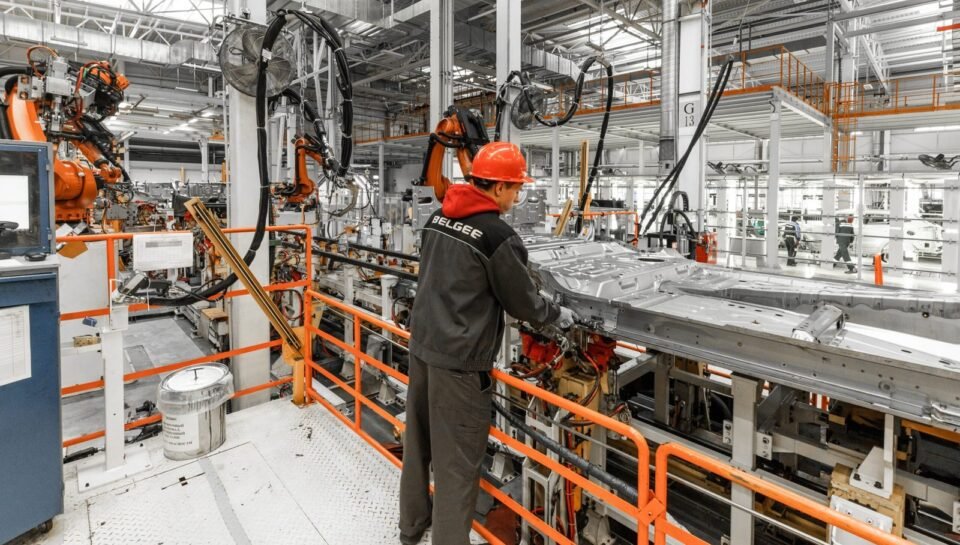Vietnam has emerged as a promising destination for manufacturing in Southeast Asia, thanks to its favorable location, abundant workforce, and stable political environment. The country has attracted many foreign investors who are looking for alternatives to China, especially in the electronics sector. Vietnam has also shown remarkable resilience and adaptability in the face of the Covid-19 pandemic and the US-China trade war, which have disrupted global supply chains and demand.
However, Vietnam still faces some challenges in competing with China, which has a larger and more diversified economy, a more advanced infrastructure, and a more skilled labor force. Vietnam needs to improve its productivity, quality, supply chain agility, and lead times to match or surpass China’s performance. One way to achieve this is to adopt lean manufacturing principles and practices.
Lean manufacturing is a production philosophy that aims to eliminate waste and maximize value for customers. It focuses on improving the efficiency and effectiveness of internal operations by streamlining processes, reducing inventory, enhancing quality, and increasing flexibility. Lean manufacturing can help Vietnamese manufacturers achieve the following benefits:
- Cost reduction: Lean manufacturing can help lower the production costs by minimizing the use of resources, such as materials, energy, labor, and space. It can also reduce the waste of overproduction, defects, over-processing, waiting, transportation, inventory, and motion. By cutting costs, lean manufacturing can improve the profitability and competitiveness of Vietnamese manufacturers.
- Quality improvement: Lean manufacturing can help enhance the quality of products and services by preventing errors and defects from occurring or detecting them early. It can also improve customer satisfaction by meeting or exceeding their expectations and requirements. By improving quality, lean manufacturing can increase the reputation and loyalty of Vietnamese manufacturers.
- Delivery improvement: Lean manufacturing can help shorten the lead times and increase the delivery reliability by eliminating unnecessary steps and delays in the production process. It can also improve the responsiveness and agility of Vietnamese manufacturers by enabling them to adjust quickly to changing customer demand and market conditions. By improving delivery, lean manufacturing can create more value for customers and gain a competitive edge.
- Innovation enhancement: Lean manufacturing can help foster a culture of continuous improvement and innovation by encouraging employees to identify problems and propose solutions. It can also stimulate creativity and learning by providing opportunities for experimentation and feedback. By enhancing innovation, lean manufacturing can help Vietnamese manufacturers develop new products and services that meet customer needs and preferences.
To implement lean manufacturing successfully, Vietnamese manufacturers need to overcome some barriers and difficulties, such as:
- Lack of awareness and knowledge: Many Vietnamese manufacturers are not familiar with the concept and benefits of lean manufacturing. They may also lack the skills and expertise to apply lean tools and techniques effectively. Therefore, they need to raise their awareness and knowledge of lean manufacturing through education and training.
- Resistance to change: Some Vietnamese manufacturers may be reluctant or afraid to change their existing practices and habits. They may also face opposition from their employees, suppliers, or customers who are used to the traditional way of doing things. Therefore, they need to overcome their resistance to change by communicating the vision and benefits of lean manufacturing clearly and convincingly.
- Lack of support and resources: Some Vietnamese manufacturers may not have enough support and resources to implement lean manufacturing successfully. They may face challenges such as inadequate infrastructure, outdated technology, insufficient capital, or limited access to markets. Therefore, they need to seek support and resources from various sources, such as government agencies, industry associations, research institutions, or foreign partners.
Vietnam has a great potential to become a leading manufacturer in Southeast Asia if it can adopt lean manufacturing principles and practices effectively. Lean manufacturing can help Vietnamese manufacturers improve their productivity, quality, supply chain agility, and lead times, which are essential for competing with China. By implementing lean manufacturing successfully, Vietnamese manufacturers can create more value for their customers and stakeholders while contributing to the economic development and social welfare of Vietnam.




